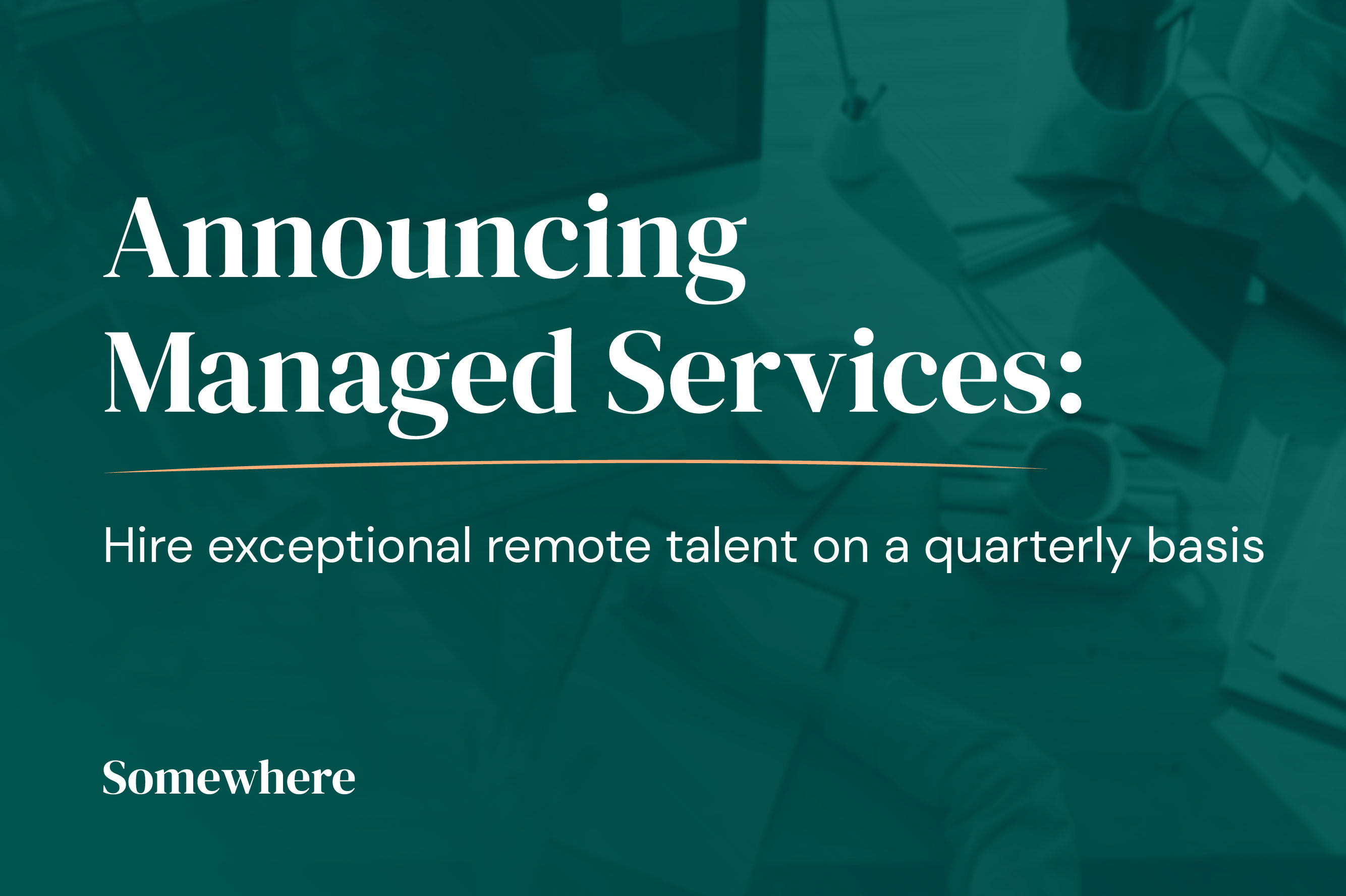Or a little nervous because you’ve never done the whole remote onboarding process before?
What you’re feeling is totally valid, but we’re to help you prepare.
Here’s a list of things to expect during remote employee onboarding, as well as tips on how to deal with them:
1. Things might not feel "natural" yet

If you and your newly minted assistant don’t hit it off right away, don’t worry. It’s normal to feel a bit awkward during the getting-to-know-you phase. It’s just like what happens in other new relationships when you’re figuring out what makes the other person tick. This is an important part of the onboarding experience.
What you can do about it
While you can’t force relationships to develop, you can work on making things more comfortable between you and any new hire by:
- Creating a watercooler Slack channel: This isn’t exactly the same as the organic conversations that take place in a physical office, but it’s close. It encourages your team to get to know each other on a different level.
- Scheduling regular 1:1s: Your new hire may find 1:1s intimidating at first, but they’ll get used to it as the weeks pass. You should also use these sessions as an opportunity to learn more about their interests or find out how they’re doing.
- Holding monthly team activities: Don’t discount activities like virtual games and team movie nights. They allow your remote team to bond, which leads to increased productivity and a higher retention rate.
- Giving it time: Time may be all it takes. Eventually, your assistant will get out of their shell and feel more at home in their new environment.
2. Cultural differences
While many in the Philippines have adopted American culture into their daily lives, they have practices and values that are distinctly Filipino, like the following:
- They’re not very direct: If Americans are straight to the point, Filipinos are the opposite. They don’t like saying no outright because they don’t want to appear rude.
- Titles and honorifics are a big deal: Filipinos have plenty of respect for people considered their seniors. Don’t be surprised if your new employee hesitates to call you by your first name, even if you asked them to do so. They’ll shrug off that habit eventually, though.
- They love bonding: Being naturally friendly people, Filipinos enjoy camaraderie. They value their relationships with their workmates and see it as a big part of their work life.
This sets the foundation for a successful onboarding process.
What you can do about it
If you want to avoid potential misunderstandings or awkwardness, it pays to learn more about Filipino work culture.
Here are other benefits of doing so:
- You’ll have a better understanding of your team
- Your new employees will feel seen and appreciate you for it
- The workflow will be a lot smoother
Read more: How Filipino Culture Is Different from the US
3. You might have to make adjustments to your current schedule

If you normally go by a strict schedule, prepare to be more flexible during the remote onboarding process.
You’ll have to make room for activities like:
- Discussing the company’s goals, values, and org chart
- Briefing your new hires about their training and expected milestones
- Weekly sync video calls
This is a core component of your onboarding program.
On top of these, you’ll want to maintain an open line of communication in case they have any questions or concerns.
What you can do about it
You can’t avoid making adjustments to your calendar, but you can prevent major disruptions. How? By integrating your assistant into your work life as early as possible. It entails:
- Introducing them to the team and your stakeholders
- Looping them in important emails
- Letting them join meetings
This eliminates the constant need to update your VA about new developments, gives them a better understanding of the company culture, and reduces questions.
4. It might take your new hire some time to get used to how things work
Your new employee may have years of experience under their belt, but they’ll still need to settle into their new role and immerse themselves in the company.
Let’s say you hire a customer support specialist.
While they know how to fulfill orders and stay calm under pressure, your products may be completely foreign territory. You’ll have to give your CS agent a few weeks to get acquainted with the features, FAQs, and return & exchange policies.
This is where a remote onboarding program shines.
It’s the same thing for other roles as well as processes, tools, and even culture in general.
What you can do about it
Some assistants learn faster than others but don’t assume that’s the case for everyone. Take that into consideration when deciding how long training should take during the remote onboarding process.
After you figure that out, the next steps are to:
- Give their tasks context
- Prepare SOPs
- Set goals and expectations
- Establish deadlines
This helps make the process of onboarding remote employees much more successful.
Related: Best Practices for Virtual Assistant Training
5. You’ll realize you might not have many processes in place yet

And that’s okay because:
- Experience is the best teacher: You learn best by doing. Find out what works and what doesn’t, and use that knowledge to shape SOPs.
- You have more flexibility: When your company is still starting out, you have room to try different things and apply changes.
- You learn together: Your new employee has the ability to help shape your company. Encourage them to share their thoughts on a process and welcome their suggestions for improvement.
- There’s always room for improvement: Growing as a company means constant refinement. As you add more people to the team, you may have to enforce more structure or adjust your policies.
Things may be a bit chaotic now, but soon enough, it will be running like a well-oiled machine.
What’s essential is that you’re transparent about your company’s current lack of structure. Don’t wait till you hire someone to reveal that your company is still in its early stages. Make it clear during the interview so that they know what they’re signing up for.
Transparency should start with the hiring process.
6. You’ll be tempted to do things yourself
Feel like doing something yourself instead of showing your assistant how to do it? You’re not alone. Other employers are in the same boat.
But look, micromanaging isn’t the solution. In the long run, it’s gonna harm you, your team, and the company as a whole. Research shows that:
1) it’s bad for employee morale
2) it has a negative impact on productivity, and
3) it's one of the 3 major reasons why employees resign.
We get it takes hours to train your team and that you’ll need to wait weeks until they master their tasks, but that’s what separates successful businesses from the ones that fail.
“Yes, documenting this stuff will INITIALLY take longer to do,” shares Somewhere CEO Marshall Haas.
“I’m reminding you because it’s easy to fall back into that thought of ‘Oh, I can do this faster myself’. That line of thinking is a trap and will forever hold you back from being able to grow larger than just yourself.”
What you can do about it
To avoid turning into a micromanager, you have to:
- Say goodbye to perfection: It’s a myth. Mistakes are bound to happen, and you can’t let them ruin your day. If your new employee messes up, look at it as a learning opportunity. Don’t treat it like the end of the world.
- Recognize that one way isn’t the only way: While you may have established processes, don’t let that stop your team from exploring other methods and suggesting a new approach.
- Learn how to delegate: Delegating important tasks like calendar management may be tough to do, but trust your VA to handle things like the professional they are. If you need tips on delegation, you’ll love our free Delegation Leap Course.
- Get your employee’s feedback: Asking your assistant for their input won’t just help you find out how to improve as a leader. It also shows them that their opinion matters to you.
This is how you implement successful remote onboarding. Also, don't forget to provide access to essential communication tools to make collaboration seamless.
Ready to onboard your new team member?
We won’t lie - onboarding remote employees takes time and energy to execute.
But trust us, it’s worth the effort.
And now that you know what to expect, you’ll be more equipped to integrate your remote workers into your company and remote environment, making them feel supported from day 1.
Whether you're refining your virtual onboarding process or welcoming your fifth assistant, optimizing the remote onboarding journey pays off.
Want to add another virtual assistant to your team? Let us know what skills and requirements you have in mind, and we’ll help you find the best fit.






.jpeg)







